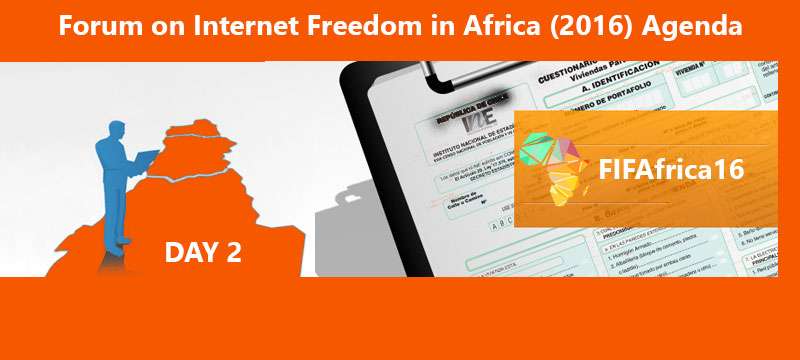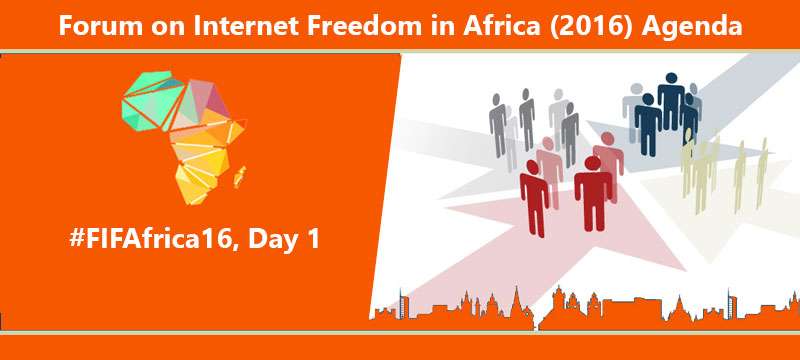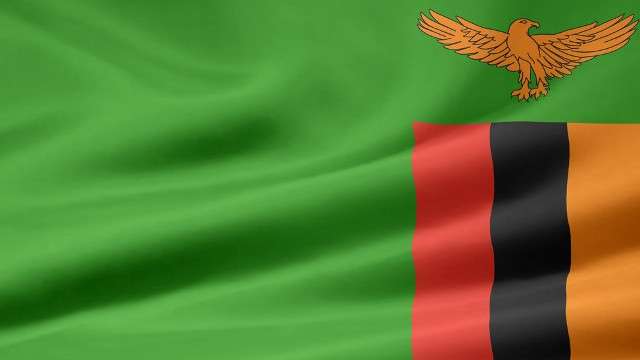By Juliet Nanfuka |
The Collaboration on International ICT Policy for East and Southern Africa (CIPESA) with the support of Facebook, the Ford Foundation, Google, Hivos, Open Technology Fund (OTF) and Small Media will assemble an audience in Kampala, Uganda for the Forum on Internet Freedom in Africa 2016. Set to take place on September 27–29, the Forum has become a crucial convening for actors on online freedom of expression and association, and the free flow of information in Africa.
Panel discussions at this year’s Forum will explore the growing trend of internet shutdowns, the increasing presence of violence against women online, the intersection of open data and human rights, African frameworks that protect online rights and their conflicts with outdated laws, amongst others.
“Recent events across various African countries make the Forum as indispensable as it ever has been in discussing challenges to online rights and the opportunities for collaborative efforts by state and non-state actors to meaningfully protect and advance internet freedom on the continent,” says CIPESA Executive Director Dr. Wairagala Wakabi. “We are glad to be facilitating growing awareness of online rights in Africa and are keen to continue contributing towards building this awareness amongst different stakeholders.”
Indeed, one of the pre events at the Forum will be the training of journalists and human rights defenders on human rights and internet policy. The training will be hosted by CIPESA, together with Paradigm Initiative Nigeria (PIN) and the United Nations Office of the High Commissioner for Human Rights (OHCHR) in Uganda.
The Forum, set to coincide with the International Day for Universal Access to information (September 28), will also serve as an opportunity to delve into the current trends on access to information on the continent. In partnership with the Africa Freedom of Information Center (AFIC) and Office of the Prime Minister (Uganda), a public dialogue on access to information as a driver to achieving the 2030 Development Agenda and the Sustainable Development Goals (SDGs) will also be held.
A key highlight of the Forum since its inception is the launch of the annual State of Internet Freedom in Africa regional reports. Previous editions of this report have focused on seven African countries – Burundi, Ethiopia, Kenya, Rwanda, Tanzania and Uganda – with a stand-alone report produced on South Africa. This year’s report has been expanded to include 10 countries. The countries featured in the 2016 State of Internet Freedom in Africa report are Burundi, Democratic Republic of Congo, Ethiopia, Kenya, Rwanda, Somalia, South Sudan, Tanzania, Uganda, Zambia and Zimbabwe.
Dr. Wakabi adds, “Access to information and the state of internet freedom are closely interlinked. Countries with higher levels of information access tend to have more online liberties than those without, and they also generally have a healthier democratic culture. The power of public information, open data and a free and open internet should not be undermined if we are to achieve effective civic participation, respect for human rights, transparent, accountable and democratic governance, and realisation of the 2030 Development Agenda.”
The Forum serves as an opportunity to gather insights from the different stakeholders in the information society ecosystem towards promoting a free and safe internet, hence the key themes that emerge from the Forum are widely disseminated. The 2015 outcomes and recommendations were shared in spaces such as the Internet Governance Forum (Brazil), the Africa IGF (Cameroon) and the Stockholm Internet Forum, and in various national convenings.
The Forum has confirmed participants from at least 23 countries and speakers from over 46 organisations including the Berkman Klein Center for Internet & Society at Harvard Law School, Panos Institute Southern Africa, BudgIT (Nigeria), Article 19 (Kenya), Digital Society of Zimbabwe, the Web Foundation, Association for Progressive Communications (APC), iAfrikan, Namibia Broadcasting Corporation (NBC), Access Now, Kenya ICT Action Network (KICTANET), National Information Technology Agency (NITA) Ghana, and Research ICT Africa. Others include Hivos, Nation Media Group, Africa Media Institute, Media Institute of Southern Africa Zimbabwe Chapter, Freedom of Expression Institute (FXI), Privacy International (PI) , Uganda Police, Zambia Police Service, University of Malawi, Communications Regulators Association of Southern Africa (CRASA) and the Ministry of Information, Communications and National Guidance (Uganda).
Follow the conversation at #FIFAfrica16.
#FIFAfrica16: Agenda – Day 2
#FIFAfrica16 | See what we have lined up for the Forum on Internet Freedom in Africa 2016. On 29 September, there will be a series sessions and the launch of the State of Internet Freedom in Africa 2016 report.
#FIFAfrica16: Agenda – Day 0 to Day 1

#FIFAfrica16 | See what we have lined up for the Forum on Internet Freedom in Africa 2016. On 27 September there will be a series of closed sessions by invite only while on 28 September the official launch of the Forum will take place.
Cyber Diplomacy with Africa: Lessons From the African Cybersecurity Convention
By Mailyn Fidler |
Two years ago, the African Union (AU) adopted its Convention on Cybersecurity and Personal Data Protection. The Convention seeks to improve how African states address cybercrime, data protection, e-commerce, and cybersecurity. However, only eight of the AU’s fifty-four members have signed the Convention, with none ratifying it. Despite this currently limited uptake, the Convention, and how the AU produced it, signals that African states value political autonomy and independence when developing cyber policy. The U.S. government should keep this in mind as it reaches out to AU member states in promoting cyber norms and capacity building efforts.
Development of the Convention
The AU’s development of the Convention reflects a desire of African states to have autonomy over their response to cyberspace challenges. The AU chose to develop its own Convention instead of promoting African participation in existing cyber treaties, most notably the Council of Europe’s Budapest Convention on Cybercrime (2001). Only one African state, South Africa, participated in the Budapest Convention negotiations, and, even then, had to ask to be included. The Council of Europe approved three other African country requests to accede, a low rate compared to other regions in the global south, and only one African state has ratified it. South Africa has refused to ratify the Budapest Convention because of sovereignty concerns.
Instead, the AU began work on its own approach in 2007. By this time, African states had already started to act as a bloc in international cyber negotiations. For instance, African countries advocated for more equitable access to the Internet and participation in Internet governance during the 2003 and 2005 World Summit on the Information Society (WSIS) – a stance that challenged prevailing Western views.
Read the full article here.
Analysis of the Relationship Between Online Information Controls and Elections in Zambia
By Arthur Gwagwa |
The defining era in Zambia’s current rise in online political and civic activism can be traced back to the period between 2011 and 2013. This is when the late President Sata embraced social media as part of his political and public diplomacy strategy. As the country now prepares for the August 2016 General Elections, government, its agencies, such as the Election Ccommission of Zambia (ECZ), the opposition and civil society are all immersed in social media.
As the country’s August 2016 polls draw nearer, government has recently increased its presence on social media to abet and encourage horizontal flows of information. This is in contrast to vertical flows, where information generated by societal actors is gathered by the government through usage of a range of methods, ranging from “responsiveness” on social media to media monitoring.
This paper explores reports of information controls and filtering of the ruling regime, whose leader, Edgar Lungu, strives to balance the dictates of political survival and his reputation as a lawyer who has previously defended press freedoms. The paper analyses past and current key political events that implicate the relationship between internet-based information controls and elections in Zambia. Finally, the paper extrapolates likely scenarios in the build up to the 2016 General Elections and Constitution Bill of Rights Referendum to be held on 11 August 2016.
Read the full report here.





